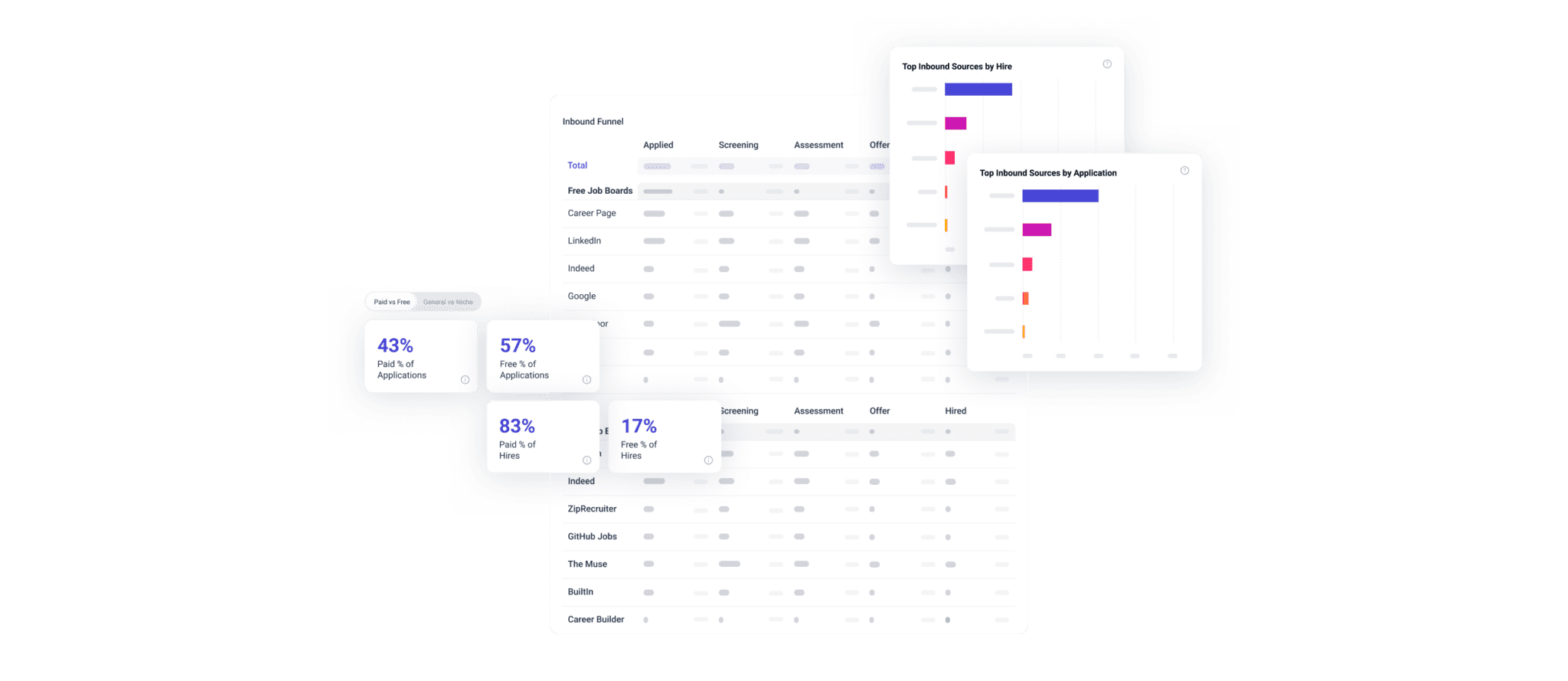We all know that a diverse and representative workforce is business-critical. Attracting and retaining top talent requires a focus on diversity and inclusion, including neurodiversity. Neurodivergent individuals often possess unique skills and perspectives that significantly benefit your company. However, traditional job postings, less than half of which companies think are actually effective, and hiring processes can unintentionally create barriers. Discouraging applicants and preventing companies from considering their candidacy. To encourage applications, ensure your team crafts neurodivergent-inclusive job posts.
As Microsoft’s Autism Hiring Program showed, it is possible to level the playing field for a demographic that had difficulty showcasing its skills in traditional job interviews. The good news is that you don’t have to be a Microsoft, to make substantial improvement. As Jon Drogheo, Senior Recruiter at Mental Health Partners shares, Datapeople has been the catalyst to help them understand, quantify, and build a more inclusive hiring process and company.
“With Datapeople, I could show that our past job ads didn’t connect with everyone. Consequently, we hired candidates who looked like the people who wrote those job ads. Now we have the data to show that we’re moving the needle towards being more inclusive.”
Here’s how the Datapeople platform helps you build bridges to all talent, including the neurodivergent.
1. Remove jargon and metaphors in job posts
Embrace clear and concise language that’s easily understood by a diverse audience. Eliminate metaphors, military and sports references, and other in-group jargon that can alienate.
Write in common (direct) language to make the job post easier to understand, crucial for neurodivergent individuals who may process information differently. Simply say what you mean to avoid implying a preference for one group over another.
Training programs and guides can illuminate best practices but often fail to cement true behavioral change. To truly banish exclusionary language, consider deploying a platform like Datapeople. Our Smart Editor highlights biased or exclusionary language and provides proactive smart nudges that improve outcomes by suggesting content that is common and direct while being better suited for local markets, roles, and intended talent communities.
2. Focus on “needs” not “wishes” in job posts
We all want great talent. However, in that pursuit, our natural tendency is often to over-qualify for a role. We build the job post around “wishes” not “needs” and this tends to be exclusionary, especially for the neurodivergent.
Focus on skills and experience that are not only relevant but required for success. List the minimum number of years of experience required, not a range or “desired experience” to help candidates better self-identify. Consider whether specific education language requirements are critical for business success. And remember, Inclusive job posts also steer clear of vague, generic soft skills like “great communication skills” and “detail-oriented.”
At Datapeople, we believe smart hiring starts with smart posting where you know how candidates of all backgrounds will perceive your job post before you hit publish. Truly understanding the context for the role and potential candidates will allow you to identify if the language, title, and content within your job post is going to align with what qualified candidates are searching for, or, if it’s going to turn them off (and why).
3. Embrace inclusive language and pronouns in job posts
Craft job posts that embrace approachable language. Consider “you will be responsible for,” “you will develop, “you will help us achieve,” and so on. This way, you’re including all talent – plus giving job seekers the impression that they’re being spoken to directly. This fosters a more personal and inclusive tone, making neurodivergent job seekers feel welcome and valued.
Converse and align directly on the Datapeople platform with your hiring managers and hiring team members. Working together to consider the best language to appeal to your target talent, including the neurodivergent.
4. Highlight company support for all employees in job posts
If your company offers benefits with broad appeal remember to highlight them. These might include a flexible work policy, paid leave, inclusive health benefits, floating holidays, mental health benefits, and more. Be sure to highlight if your company has formal employee resource groups (ERGs) or mentorship/sponsorship initiatives to drive advocacy and career advancement.
Talent of all backgrounds will want to know that you’re invested in their development should they accept an offer with you. This is especially true for talent that often feels unwelcomed and unsupported by other companies. Ensure your job post templates include these crucial representations of your commitment by default.
5. Include accommodation and diversity statements in job posts
Don’t overlook accommodation and diversity statements which are crucial to speak to how you support neurodivergent talent. Be sure to highlight how you intend to provide reasonable accommodation, as required by ADA, be upfront about the multiple forms of contact you offer, and if it’s available share that you offer assistance to candidates that may need help to apply.
In our study of how DEI, or EOE, statements perform, we found that simply adding a diversity statement to your job post significantly impacts how inclusive job seekers perceive your organization to be. This perception is paramount for those who so often feel excluded, like the neurodivergent.
Neurodivergent-inclusive job posts for a better future
Creating a welcoming culture starts with hiring. By incorporating these steps, and embracing hiring analytics, companies will create neurodivergent inclusive job posts and hiring practices. They will include and appeal to talent that too often is overlooked or excluded. Datapeople hwlps your hiring teams be aware of their unconscious biases and develop lasting habits and behaviors to avoid them. This fosters a more inclusive workplace culture. It will also expand your talent pools, allowing you to tap into a diverse range of skills and perspectives to drive innovation and business success.
Here at Datapeople, we’ve analyzed over 65 million job listings and millions of hiring outcomes from around the globe to understand exactly how biases appear and the impact they make on your hiring. Are you ready to instill lasting habits and behaviors that secure the creation of inclusive job descriptions proven to attract top talent? Download The Talent Acquisition Mega Guide to Equitable Hiring in 2024 to answer any questions you might have about best practices.
Ready to learn more about how Datapeople can help you build a more neurodivergent inclusive hiring process? Our team of experts is here to help, schedule a hiring process audit to identify easy actions that will make an immediate impact.







